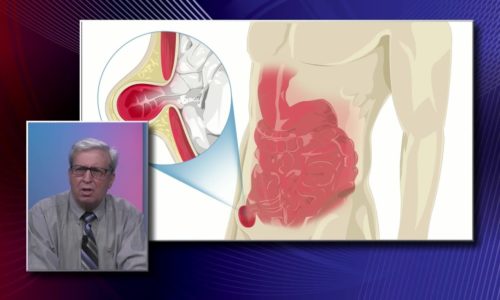Sports Hernia in Baseball Players |
Dr. Derek Papp, Sports Medicine Physician with Miami Orthopedics &
Sports Medicine Institute, says sports hernia is something that
physicians have started to look a little bit differently now.
Whit a digital imaging, the specialist explains when it occurs and
affirms the treatment is with rest, rehab and medication.
In baseball players, Dr. Papp says sports hernia is related to
throwing and hitting a ball.
Transcript
Now there’s something called sports hernia, what is that?, and what sort of symptoms come from a sports hernia?.> Well that is a interesting question, because sports hernia is something that physicians have started to look at a little bit differently now, so again if we look at our BioDigital model, a sports hernia, you know, your typical hernia is when you have…, you know, basically part of your insides are coming out, so you know that’s your typical hernia, when we talk about that, and whether it’s in the midline, or an inguinal hernia, or whatever that’s a hernia and that in the classic sense, a sports hernia looking at your BioDigital, is where you start to have…, it’s basically damage to these muscles here where they attached it to the canal, and then down to the pubic bone here, the treatment for it again, is like all kind of treatment, you try to treat it with rest, and Rehab and medication, -does it bulge though like a regular hernia?, or does what we don’t see a bulge?.> No so it’s not the kind of thing, where you know, you go to your doctor, and the doctor says you know bear down, and you see something kind of popped up, this is something that’s usually pain, and it’s painless it’s related to actual activity.> So in in terms of a baseball player, what causes?, I mean, where does the sports hernia come from?, what kind of activity?.> It’s everything that we’ve been talking about, it’s throwing a ball, it’s hitting a ball, I mean this is a good example of something that people will play through for a while, but it’s usually pretty debilitating, so at some point in time, the athlete will say hey you know what I’m not getting any bette,r and then they have to get treated.








